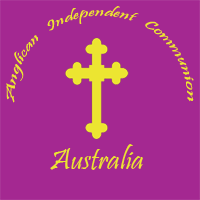Use of Liturgical Material
The Approval List
Full Approval
The English Missal
The First English Prayer Book (1549)
The Book of Common Prayer (1662)
The Book of Common Prayer (1928)
An Australian Prayer Book (1978)
The Tyndale Bible (1534)
The King James (or Authorised Version) Bible (1611)
The Amplified Bible (1958)
The Revised English Bible (1989)
The Third Millennium Bible (1998)
The New American Bible
The New King James Version Bible(2002)
Limited Approval
Common Worship: Morning Prayer. Evening Prayer. Compline. Order 2 Holy Communion (Traditional Language), plus Proper Prefaces Pg 246-247, Seasonal Prefaces, Pg 294 and 300-329. It is also suggested that there may be no objection to a suitable Post-Communion prayer being used in the BCP Service as an addition.
Common Worship: Pastoral Services ISBN 07151 2007 7. Distribution of the Holy Communion at Home or in Hospital to the Sick and Housebound. This is close to the BCP narrative, and is in traditional language. It is better than the BCP which is too long for the seriously ill.
Lent, Holy Week and Easter ISBN 07151370500
The Promise of his Glory (All Saints to Candlemas) ISBN 07151 37387.
These latter two editions give great help in preparing Services for these seasons which are not covered in the BCP but which are in general use. i.e. Blessing of Palms, Maundy Thursday, Passion Narratives, Easter Garden, Carol Services etc.
The Jerusalem Bible
The Revised Standard Version Bible (1946-1971)
The New Revised Standard Version Bible
The Good News Bible for Children's Services only
The New Living Translation Bible
Not Approved
The Alternative Service Book 1980
The New International Version Bible
The New English Bible (1961)
Whatever Services are used should ordinarily be used in conjunction with the BCP Lectionary which is to be found in the BCP, the SPCK Lectionary and various other publications. They may be occasions when taking a Service as 'cover' where the CW Lectionary is normally used, that it would be inappropriate to use the BCP readings.
It is intended that by reference to this list our ministers may have ready reference to what might be considered normal usage in worship. Of course, the study of theology is another matter, and a serious student will read widely amongst many versions of the Scriptures, and many different historic and current liturgical texts.
It is also understood that this list cannot cover every eventuality. If a minister has a carefully considered reason for using some other liturgy or version which does not offend against the church's basic ideals, that should be allowed. There will be cases where, under the church's Inter-denominational Relations Code of Practice, Services will be taken in churches of like faith and doctrine. In such cases it may well be necessary to use locally approved versions. Further, in any case of doubt, the matter should be referred to a bishop for direction.


![Validate my RSS feed [Valid RSS]](uploads/AICA/valid-rss.png)